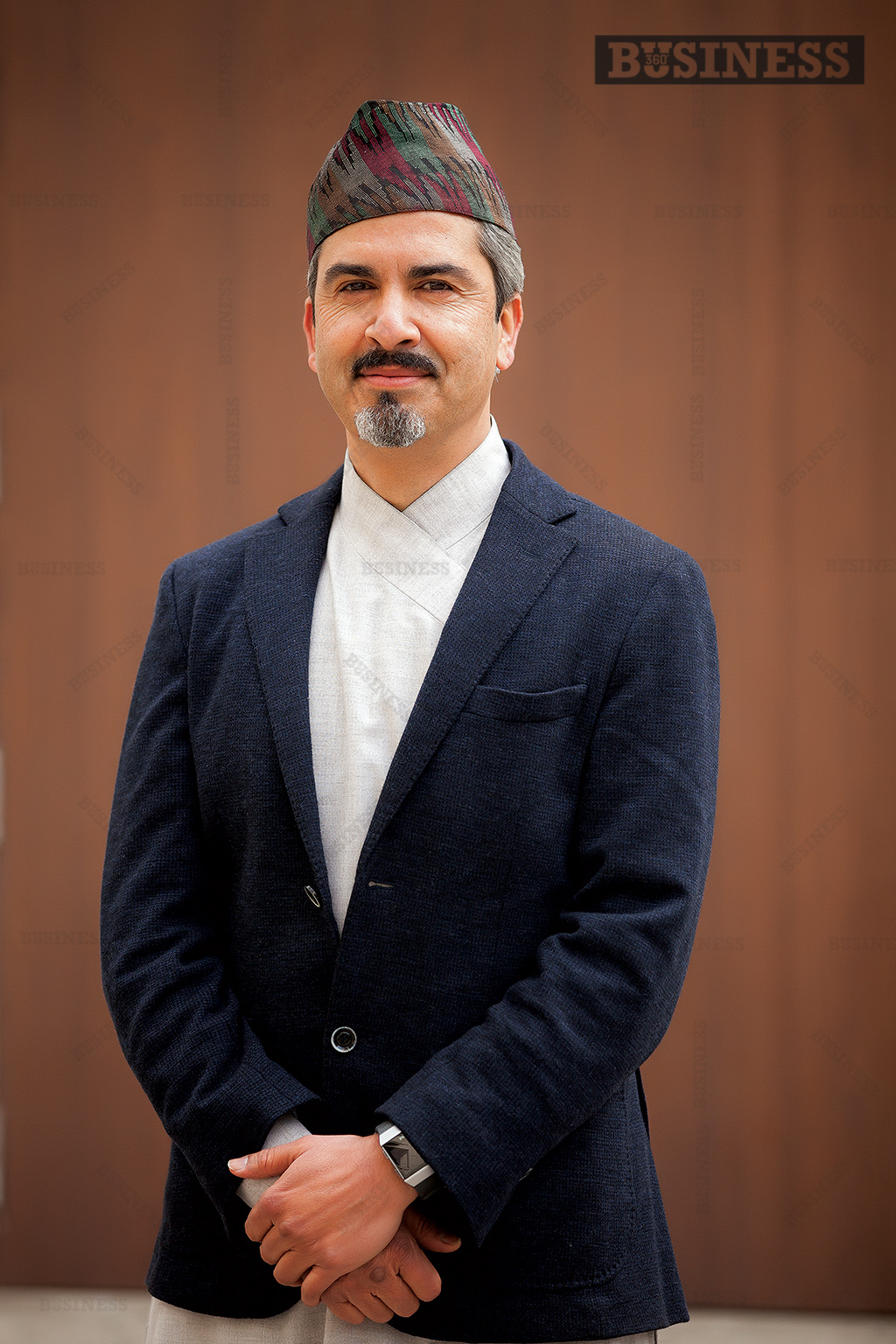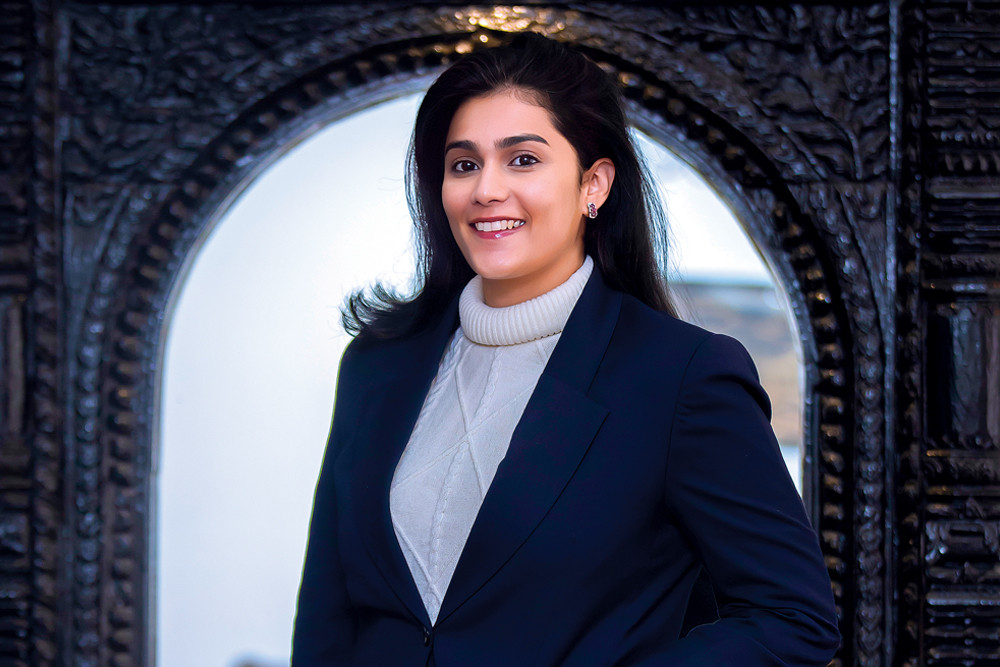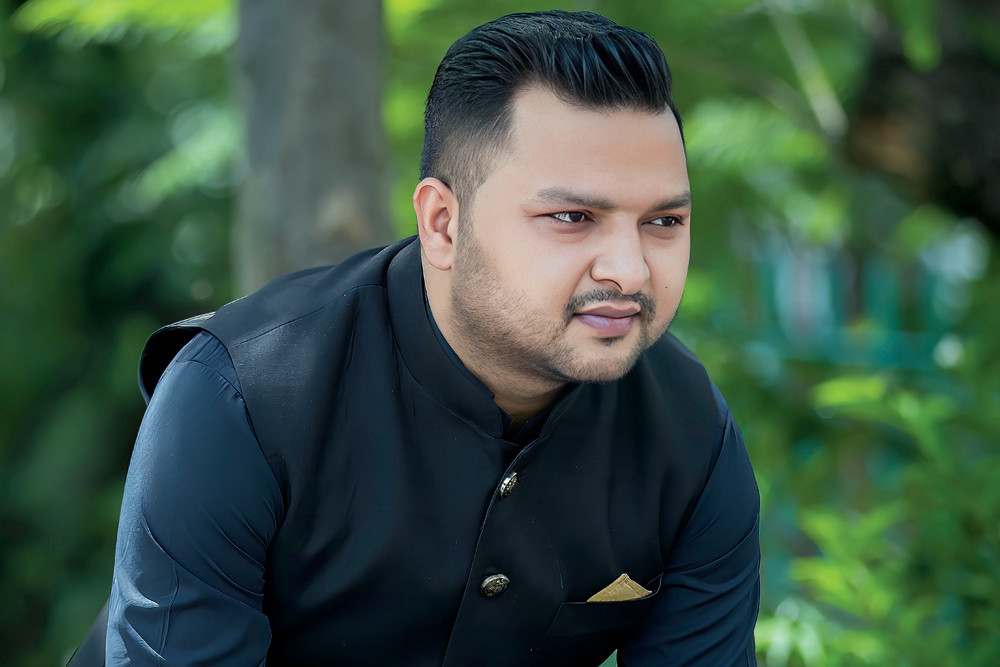
Dr. Sameer Mani Dixit
Center for Molecular Dynamics Nepal
Text by Sajeet M. Rajbhandari
Dr. Sameer Mani Dixit is a multifaceted individual: a research scientist, an actor, producer, cyclist and television show host. Dixit is leading influence in the field of biotechnology in the country and an active advocate of public health. He dives back into his childhood and also talks about the legacy he seeks to leave behind and all the things that have shaped him to become who he is today.
Boyhood
I grew up like any other person in Kathmandu valley. Perhaps I was better off than many of the people here. With my father being a well renowned physician, I was lucky to be in the top twenty percentile of families in the valley. I grew up as the eldest son along with two sisters.
It was perhaps my father who has had the most significant influence on my life. I suppose it was because of my father being who he was and the stature he had in the country as a physician that really influenced me positively. I had a wonderfully average childhood and a relatively comfortable and easy life.
If I were to recount a particular childhood memory that really shaped me, there is one that involved kites. As a boy, I used to really enjoy flying kites during Dashain, however my father was strict and had made a rule for me that I was to only fly kites after my holidays started. Back in those days, the holidays used to start right after Ghatasthapana. Before Ghatasthapana, I wasn’t allowed to touch the lattai let alone go out and fly the kite. This story took place a good number of days before Ghatasthapana; then kites would fill up the sky even long before the festival started. One eventful day, just behind my house, a kite was falling down, swaying in the wind so I instinctively start running after the kite across the residential compound. All of my father’s rules went out of the window and there I was a boy running barefoot after a kite, and as fate were to have it, I was almost hit by my father’s lovely red Volkswagen Beetle. He saw what I was doing and regardless to say I was punished for disobeying him. But the message that I learnt from all of this was that, “If things can go wrong, they will go wrong.” It could have been a hundred of other cars but it happened to be my father’s; had it been a minute before or a minute after I would’ve been scot-free. This is something that I still apply to my life today, “Don’t take chances in life, always be prepared.”
Career
There are many moments in my career that I feel proud of. Getting degrees from universities I studied in at America and Australia, and being invited back to all of these universities in one way or the other, being able to celebrate ten whole years of my organisation’s existence in Nepal, getting awarded the Mahendra Vidhya Bhusan by the former King Gyanendra, having my first film “Highway” go all the way to the Berlin Film Festival, playing the lead role in the movie “Na Eta Na Uta”…these have all been events that touched my career in one way or the other. I can’t tell which has been more important than the other, but each of these are special to me in their own way.
It’s okay to not be sure
I wasn’t really sure what I wanted to do with my life as I grew up. Some people are really sure of what they want to do with life from very early on; I was never one of those people. Even when I was 25 years old, I wasn’t sure what I wanted; all I knew was that I wanted to study science because it felt important to me. But even in science there are a lot of fields and I didn’t know what to make a career out of. You should be a bit realistic and have a general idea of what you want to do; if you’re bad at mathematics there isn’t much point in saying you want to become a physicist. Other than that, it’s okay to not know what you are doing with life, and I am a living example of it.
Life has a tendency of shaping the way as you move forward. My father who was a doctor himself didn’t want me to become a doctor. And this made me stray away from that path but there came a time in my life where I actual did wish to have taken that course but by that time I had already moved too far down the road.
Life and career have been more of a journey than a destination, and it continues to be so. The fact that I am a scientist hasn’t stopped me from working in the media. It just so happened. I have always been a person who’s willing to give anything a shot, and so far things seem to have worked out well enough.
Juggling
I have always had a knack for juggling things. I can wear a lot of different hats and it so happens that I can do it well. I only came to figure that I had this skill during the course of the last decade. Now the question of whether this is something that is natural or something I have nurtured, I don’t know. When people first started to mention this, I used to laugh it off, but over time I have come to realise that this is a skill that I am lucky to have been blessed with.
I like to work in minutes. People find me very systematised when it comes to planning my schedule. I have a tendency to prioritise. Not only that but I make sure that I only prioritise things that I can do. If there is something that is important but kind of hard to accomplish, I won’t put it on the top of my list today, but I will do it tomorrow. I make sure that my schedule works from minutes to hours to days and then only to weeks. In my diary, there might be three or four things that I might want to do, so I make sure that I do not make these tasks lie parallel to one another, and that I do these one step at a time. If work A doesn’t work out, I immediately move to work B and once that is done then only do I move to work C. And the surprising thing is that I still end up with a bit of free time at the end of a day.
A legacy
My first priority will always be science and my organisation. I intend to make sure that CMDN continues to grow and maintain the progress it has been making without getting sidetracked. I also want to keep promoting and advocating public health.
At the same time, I want to showcase that you can do the work that you do while also being good at other stuff as well. I’d like to also make sure that my show, “Good Morning Nepal” takes bigger shape and becomes a success storiy of Nepali television. It’s been two years since we started and I hope it progresses to a higher level both nationally and internationally.
A legacy I strive to create is that of positive social change where I am able to change the system so that it ends up becoming better. I believe that you can walk multiple paths and be good at it and give other people walking those paths something to look forward to.
You should not get too worn down or pushed down by the expectations of family, society and friends. You should be driven by your own heart and ambition. It is important to know your strengths and weaknesses when you choose a path. Sometimes your weaknesses turn into strengths. Sometimes you just need to let your heart be the driving force.



.jpg)

.jpg)